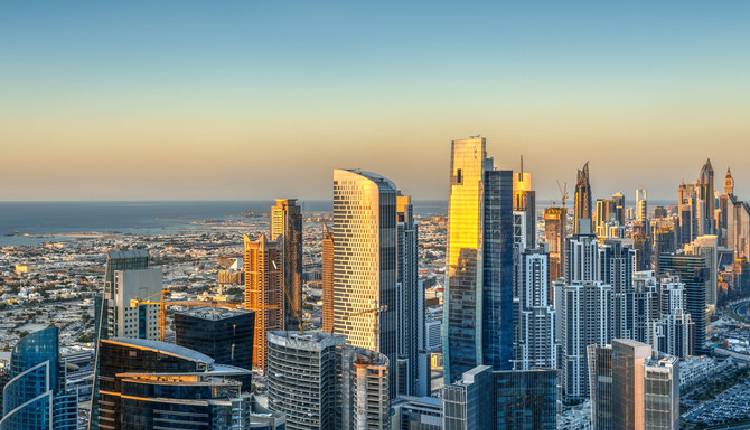The Gulf real estate sector will grow in the first half of 2024 due to increasing demand and government policies that support the sector, according to a report released on Sunday by the Kuwait Financial Centre, also known as Markaz.
The report suggests that the real estate sector of the Gulf Co-operation Council will experience consistent or even faster growth due to stable oil prices, a surge in real estate demand, strong economic growth, and beneficial government policies.
Markaz, committed to offering investors the most recent and reliable market insights, has examined the performance of the real estate sector in the latter half of 2023 and provided a comprehensive forecast for the first half of 2024.
The Markaz Real Estate Macro Index Scores for the first quarter of 2024 are 2.9 for Kuwait, 3.8 for the UAE, and 3.55 for Saudi Arabia. These scores show a slight increase for Kuwait from the second quarter of 2023, where the scores were 2.8 for Kuwait, 3.8 for the UAE, and 3.55 for Saudi Arabia.
The reports take into account key macroeconomic indicators such as growth in GDP, fiscal position, investments, inflation, and population growth.
The Saudi Real Estate Report predicts a boost in the Kingdom’s economic growth in 2024, fuelled by the oil and non-oil sectors’ strong performances.
Markaz attributes this anticipated improvement mainly to Saudi Arabia’s robust performances in both sectors, with an expected 4 per cent year-on-year increase in real GDP growth.
Even with a decrease in real estate transactions, the report points out to positive signs such as increasing land prices and sustained demand in the office sector.
The economic performance of Saudi Arabia is set to get better, propelled by higher oil demand, moderate inflation, and low unemployment.
The firm suggests that the performance will gain momentum due to the contribution of non-oil activities and proactive government spending.
The report also points out that the value of Saudi Arabia’s real estate transactions fell by 11.3 per cent year-on-year until September 2023, accompanied by a 7 per cent decrease in volume.
The Kingdom’s real estate price index saw a 0.7 percent year-on-year rise in the third quarter of 2023, driven by a 1.2 per cent increase in the cost of residential land. However, due to higher mortgage interest rates and inflexible property prices, residential transactions kept falling.
The office sector, which performed well in 2023, is likely to maintain its strong performance in 2024 because multinational companies are driving demand as they seek to establish their regional headquarters.
Based on its evaluation of various macroeconomic factors in the Kingdom, the analysis forecasts a faster growth phase for Saudi Arabia’s real estate sector in the first half of 2024.
The report suggests that the sector’s advantageous position will benefit from steady growth in non-oil activities, a thriving hospitality sector, and increased government infrastructure spending.
Likewise, the Kuwait Real Estate Report predicts a steady market in the country for the first half of 2024, backed by economic growth forecasts and stable oil prices.
Even with challenges like inflation and concerns about credit growth, the report maintains a positive outlook on the stability of Kuwait’s real estate sector.
The UAE Real Estate Report forecasts ongoing economic growth in 2024, bolstered by factors such as an increased oil GDP and policies that favour investors.
The report anticipates ongoing growth in key real estate sectors, despite potential hurdles like inflation and the effects of interest rates.


